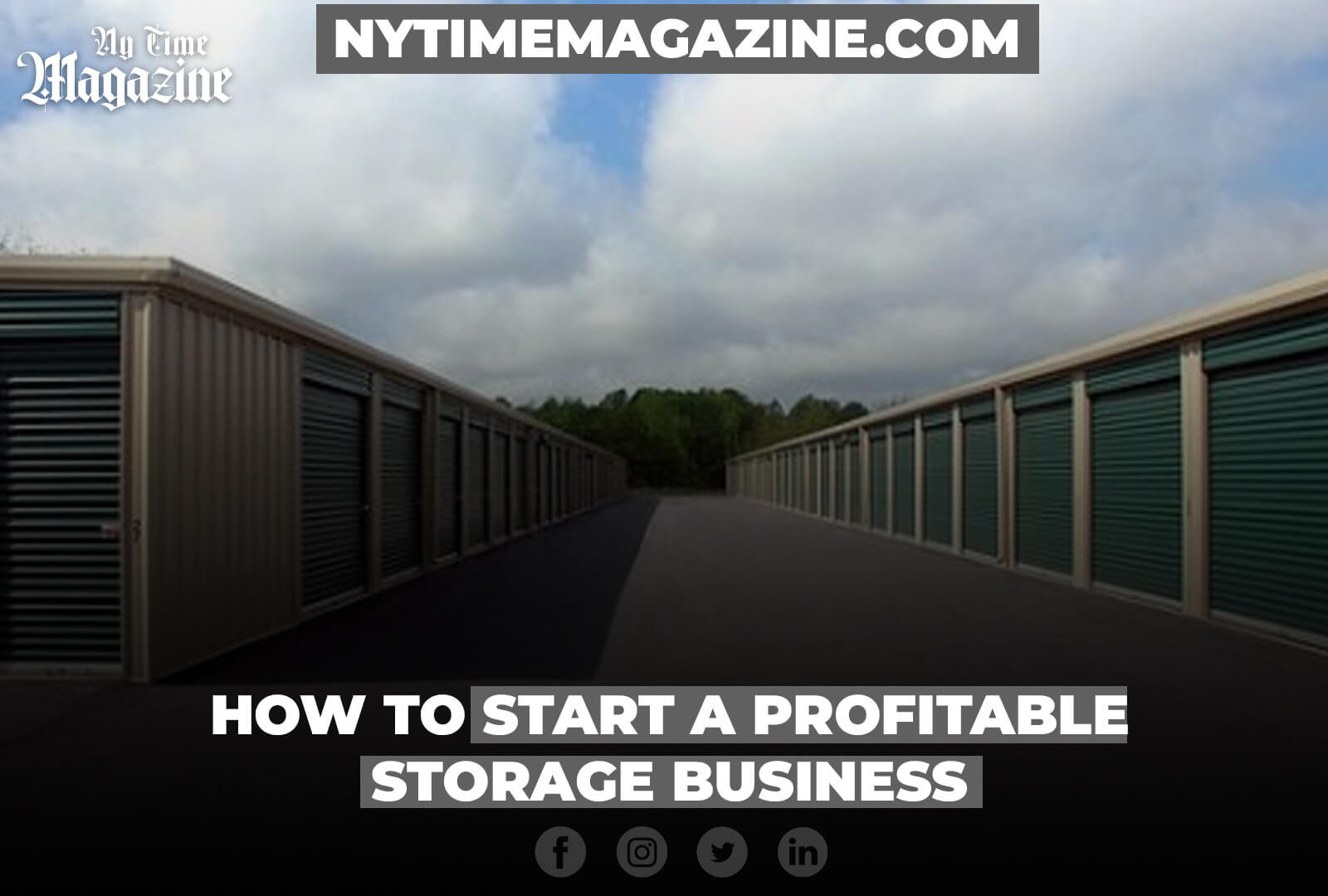Contents
- 1 Introduction:
- 2 Understanding the Storage Business:
- 3 Why Start a Storage Business?
- 4 Startup Costs and Considerations:
- 5 Construction Costs:
- 6 Property Purchase Costs:
- 7 Buying an Existing Business:
- 8 Starting Without Capital:
- 9 Storage Business Franchise:
- 10 Maximizing Profits:
- 11 Operational Costs:
- 12 Using a Storage Unit Income Calculator:
Introduction:
Starting a storage business, also known as a self-storage or storage container business, can be a lucrative venture. This article will guide you through the process of starting a storage business, covering its potential benefits, costs, and various approaches to entering this industry.
Understanding the Storage Business:
Storage businesses are a subset of the commercial real estate market, providing secure storage solutions for individuals and companies. They offer a wide range of storage options, from household items to high-value assets, often with additional services such as packaging, climate control, and specialized storage solutions. These businesses typically charge a monthly fee and aim to maximize occupancy for profitability.
Why Start a Storage Business?
There are compelling reasons to start a storage business:
- Lucrative Industry: The storage industry is thriving, particularly in North America, where smaller living spaces and increased renting have led to a booming market. The U.S. alone generates around $39 billion in annual revenue from storage businesses.
- Lower Start-up Costs: Starting a self-storage business is generally more affordable than traditional real estate rental businesses, with lower upfront costs.
- Low Breakeven Point: Storage businesses can turn a profit with occupancy rates as low as 40-45%, which is significantly lower than other rental property types.
- Higher Rental Rates: Storage units command higher rental rates per square foot compared to other rental properties like multifamily dwellings.
- High Occupancy Rates: On average, U.S. self-storage businesses maintain an occupancy rate of nearly 85%, ensuring a steady stream of income.
Startup Costs and Considerations:
The startup costs for a self-storage business depend on several factors:
- Property Size, Location, and Condition: The size and condition of your property, along with its geographic location, greatly influence costs.
- Staffing and Security: Consider the staffing and security needs of your facility.
- Registration, Licensing, and Legal Fees: Be prepared for legal and administrative expenses.
- Equipment and Finishing Costs: This includes storage units, security systems, and facility finishing.
- Surrounding Infrastructure: Accessibility and infrastructure development can affect costs.
Construction Costs:
Expect self-storage construction costs to range from $25 to $70 per square foot. For an average 56,900 square foot facility, this totals between $1,422,500 and $3,983,000, excluding land costs.
Property Purchase Costs:
The cost of purchasing property varies, and you might need to account for conversion costs if it wasn’t previously used for storage.
Buying an Existing Business:
Acquiring an existing storage business can be a quicker path to positive cash flow, with costs ranging from tens of thousands to millions of dollars.
Starting Without Capital:
If you lack capital, consider business loans or investors. The storage industry is attractive to financial institutions and private investors, making financing more achievable.
Storage Business Franchise:
Buying a franchise offers an established brand, guidance, and support. Steps include research, applying to the franchisor, signing an agreement, financing, location selection, facility development, legal obligations, staffing, marketing, and opening.
Maximizing Profits:
Marketing is key to maximizing self-storage business profits. Implement digital advertising campaigns, especially pay-per-click (PPC) advertising targeting your local area, to generate awareness and attract customers.
Operational Costs:
Ongoing operational costs include utilities, wages, maintenance, taxes, insurance, advertising, and technology-related expenses. Costs can vary based on facility size and other factors.
Using a Storage Unit Income Calculator:
Using a storage unit income calculator helps estimate potential profits by factoring in operational costs, occupancy rates, and more. It provides a clear picture of your business’s financial viability.
Conclusion:
Starting a storage business can be a rewarding venture, given its potential for profitability and the growing demand for storage solutions. Careful planning and effective marketing can help you establish a successful storage business.
Frequently Asked Questions
1. What exactly is a storage business, and how does it work?
- A storage business provides secure storage solutions for individuals and companies. Customers rent storage units to store their belongings or assets. These units are typically accessible 24/7 and come in various sizes to accommodate different needs.
2. Is starting a storage business profitable in today’s market?
- Yes, the storage industry remains profitable due to factors such as increased demand for storage space, higher rental rates, and lower breakeven occupancy levels compared to other rental properties.
3. What are the key factors to consider when choosing a location for a storage facility?
- Location is crucial. Look for areas with high population density, growing communities, and limited competition. Accessibility, proximity to residential and business areas, and local zoning regulations are also important considerations.
4. How can I finance the startup costs of a storage business?
- Financing options include business loans, investors, or purchasing an existing storage facility. The storage industry is considered attractive to both financial institutions and private investors.
5. What are the essential security measures for a storage facility?
- Security is vital. Consider installing surveillance cameras, access control systems, well-lit areas, and perimeter fencing. Adequate staffing and regular security checks are also important for maintaining a secure environment.
6. What are some additional services that can enhance my storage business?
- Offering services like climate-controlled units, packing and moving assistance, and specialized storage solutions can attract more customers and increase revenue.
7. How do I market my storage business effectively?
- Effective marketing strategies include online advertising, local SEO, pay-per-click (PPC) campaigns, and building a user-friendly website. Additionally, consider partnerships with local real estate agents and businesses for referrals.
8. What legal and regulatory considerations should I be aware of when starting a storage business?
- You’ll need to obtain the necessary permits, follow zoning regulations, acquire adequate insurance, and ensure compliance with local and state laws related to storage facilities.
9. How do I calculate pricing for storage units?
- Pricing can vary based on factors like location, unit size, and amenities. Consider market research and competitive analysis to determine pricing that attracts customers while ensuring profitability.
10. What is the typical timeline for launching a storage business?
- The timeline can vary, but it usually involves property acquisition or construction, obtaining permits, facility setup, and marketing. Expect the process to take several months to a year or more, depending on various factors.



